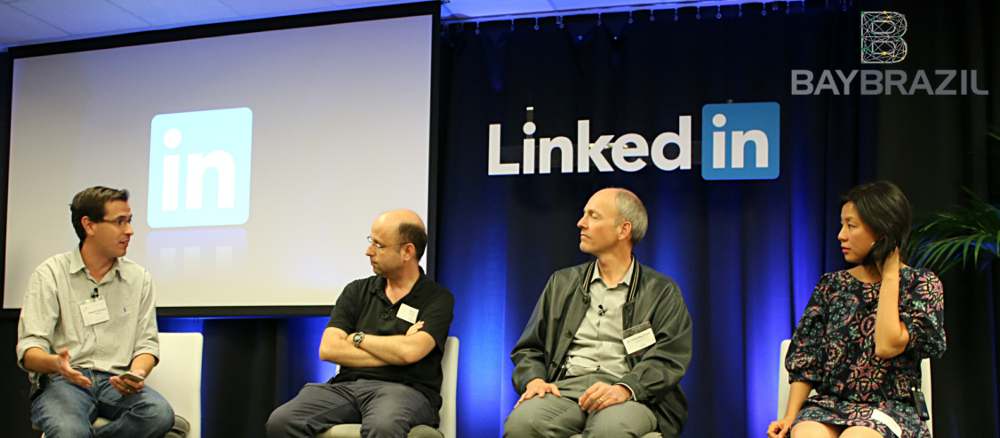Our Oct 21st event featured an international panel to discuss the impact of mobile devices on children’s education and entertainment around the world. Here are the highlights of the presentations and conversation.

Brazil, Israel, Germany, and China’s entrepreneurs present their experience about Kids’ learning through technology
Suelen Vale
Many parents have had the experience of using technology such as tablets and smartphones to entertain their kids while running some chores, making important calls or even to convince the little ones to sit and eat dinner. Some parents have also adopted some engaging apps available for kids as part of their children’s’ playing routine. Studies have shown that the access to mobile media by children has grown considerably in the last few years. In the United States a research from Common Sense Media shows that children’s access to mobile media devices is greatly higher than it was two years ago. According to them, 75% of families in the US with children possess mobile technologies such as the iPad and smartphones.
However, one important point to be considered, which is the major concern of parents, is whether these new technologies are able to combine entertainment and education, as a way to make the “free time” an opportunity of learning as well. According to Eduardo Lins Henrique, Head of Global Expansion of PlayKids at the Brazilian company Movile, it is possible to create engaging and educational apps that have a great impact on kids development. In the latest BayBrazil’s event ‘Education on mobile’, Eduardo showed some of the PlayKids’ features and explained why his app is currently the largest success for kids on the App Store.
“In the app, kids can play with the interface, which is a train with different options of games and lessons, in each wagon they choose. In the first wagon, for example, we have more than ten educational games. They can also choose their favorite character and watch highly educational cartoons. We have many books to help adults to put their kids to sleep, which is a hard mission for any parent, and also more than 100 different Kids’ shows”.
BayBrazil also invited executives from other three countries to talk about kid’s education through mobile technology. The educational apps developers Johannes Ziegler, from Germany, and Guy Vardi, from Israel, agreed that there is a growing interest of parents, teachers, and children in learning through the use of technology not only at home but in schools. Ziegler is the CEO of Miaplaza and created two different projects with games and lessons called ‘Always Icecream’, for girls, and ‘Clever Dragons’, developed for boys. He explained that in the US there is high acceptance and adoption of technology for education by schools. However, in Germany, the situation is completely different.
“Even though education in Germany is highly celebrated and the country consumes a lot more books than the US, its schools are not open to mobile and online education. My daughter went to an exchange for six months in Germany last year, and I saw her writing her paper with a pencil and not a computer. On the other hand, I have two daughters who go to schools here in the US where they get iPad, Chromebooks, and everything is technology oriented”. When it comes to the market of educational apps in Germany, Ziegler emphasizes that his company is not pushing its products for that ecosystem.
“There is a thinking that education should be free in Germany. So, even though Germans pay for books, they do not pay for educational apps. In American schools the situation is different and I know that because we sell our products to them”.
The Israeli developer Guy Vardi explained that there is a very high potential for the adoption of new technologies in Israel since there is no resistance from the population. The penetration of smartphones in the country is 57%, one point more than in the US. “The curriculum, however, is local, which means that for an international company is useless to try to develop any content other than Math, which is what our company, Slate Science, is doing.” Vardi’s company has a project called ‘Matific’ which is a series of applications focused on mathematical insights or elements that require that children discovers the principles to solve the problems by themselves. The company has the version ‘Matific for schools’, which allows teachers to customize the interface to facilitate its use in class.
Edith Young, the VP of international business development at Dolphin Browse, brought a different perspective about children’s education in China, where she comes from. She mentioned that, because of the policies of only child in her country, many children has four to six adults willing to pay high prices for that one child’s education and training. “I am not an expert on education, but I know for my own experience, how much Chinese parents love to pay for their children’s education. I also know about the mobile market in China, which is a very exciting country to look at.”
According to Young, right now, the forecast is that China will reach 400 million smartphones this year. The country is already the number one smartphone market in the world, 90% of which is Android focused. “There are more people learning English in China than in the rest of the world. Because of that, a startup from Shanghai developed a video app for the Chinese people learn English. The company hires people from around the globe to teach English using the mobile app, via video. They monetize really well and the engagement is super high.”








